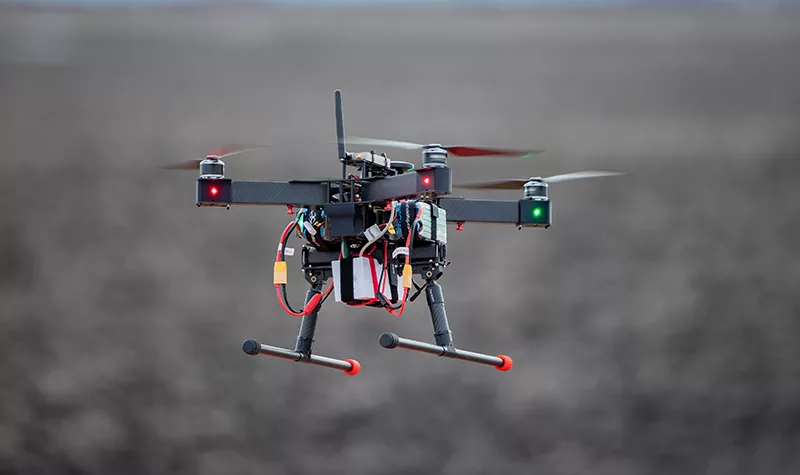The University of North Dakota’s Unmanned Aircraft Systems (UAS) program is taking on new standards in training students for the unmanned aviation workforce.
In collaboration with the National Institute of Standards and Technology and Airborne Public Safety Association, UND now will offer students a new form of certification as they progress through their four-year UAS Operations degree and learn to pilot drones.
With NIST and APSA’s stamp of approval, pilots can show they have had more practical levels of flight training than the Federal Aviation Administration’s baseline level of certification — a regulation known as Part 107. Currently, the FAA requires passage of only a written exam to legally fly small UAS, which are drones weighing less than 55 pounds.
As UAS Program Director Paul Snyder notes, every other form of traditional flight requires rigorous testing, both written and practical, to fly commercially.
“With that in mind, it makes sense to use NIST to help us to train to a higher standard that is recognized by the industry," Synder says.
NIST — a non-regulatory agency of the U.S. Department of Commerce — is one of many organizations that has worked on building practical standards for the UAS industry. With a lack of further regulation from the FAA, beyond the Part 107 requirements set in 2016, the first place to turn is toward industry and consensus standards, Snyder said.
“It’s important for educators and organizations to be engaged with those standards, so that we’re in the right place to be a voice for change as the industry continues to mature,” he says.
By aligning with NIST’s framework, UND can maintain its place on the leading edge of UAS operations, advancing on work UND has already done to become the first University program recognized by ASTM International’s UAS training standards in 2019.
Similar to ASTM consensus standards, the new NIST-developed certification establishes a level of performance in a scenario-based environment, requiring the operator to plan, coordinate and execute a mission. Once students complete the APSA’s Basic Proficiency Evaluation for Remote Pilots, which will be integrated into UND’s existing courses, they can pay a small fee to receive their certification through APSA.



![[Technology Corner] A Big Step Forward for Interoperability & Data Sharing](https://www.precisionfarmingdealer.com/ext/resources/2025/12/12/A-Big-Step-Forward-for-Interoperability--Data-Sharing.webp?height=290&t=1765565632&width=400)


